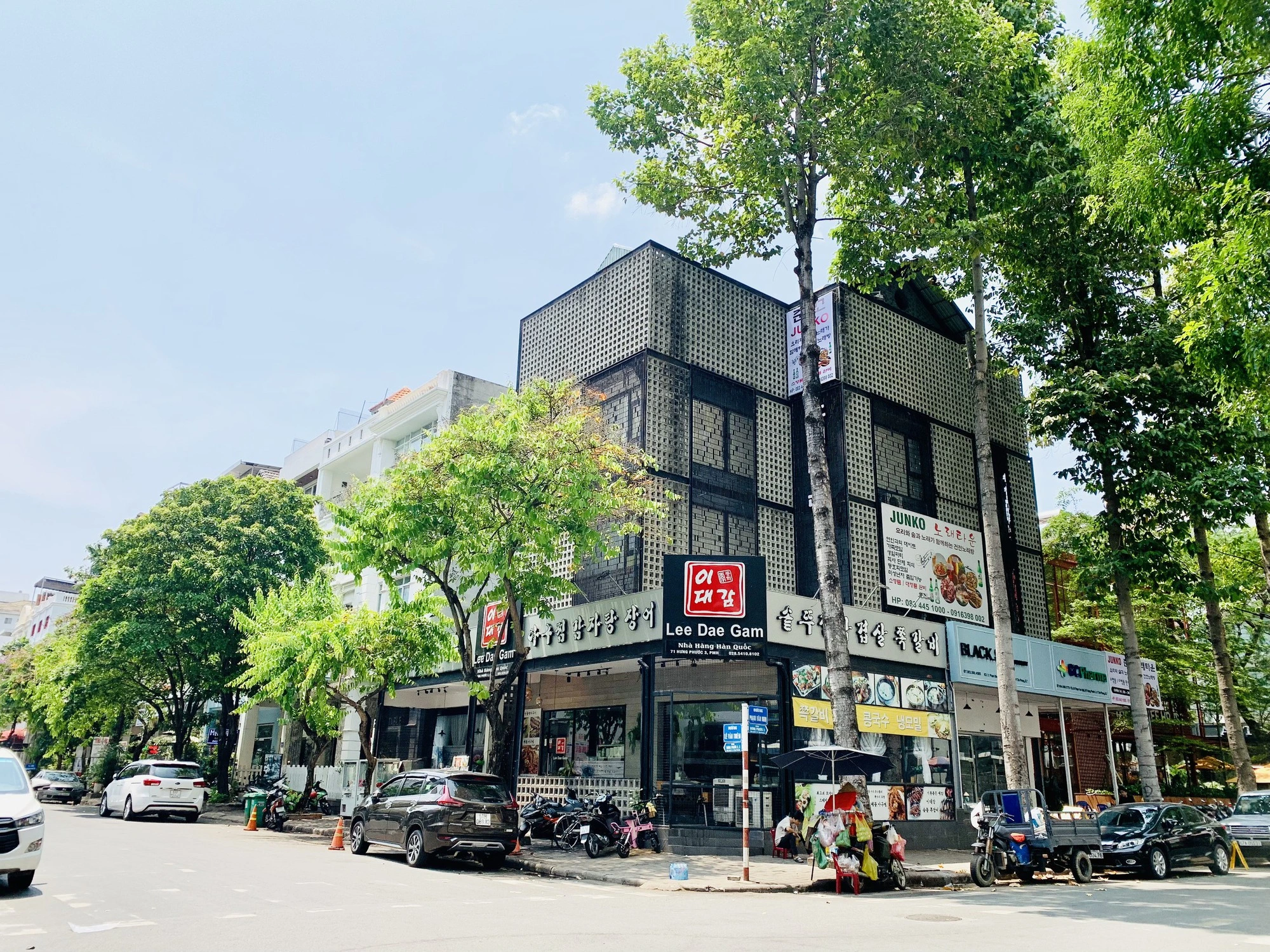 Email: support@vespaagogo.com
Email: support@vespaagogo.comCultural Insights
- Home
- Travel Tips
The Languages of Vietnam: A Colorful Chorus Through History and Today
2025-09-01
Vietnam is a land of contrasts: tranquil rice paddies and roaring motorbikes, ancient pagodas and futuristic skyscrapers, street food Michelin restaurant on plastic stools and five-star dining. But just as rich and diverse as the scenery is the soundscape: the languages of Vietnam. From old words spoken through generations to the modern TikTok slang, Vietnamese people speak more than you might expect.
So... what language do Vietnamese people speak? Grab your cà phê sữa đá (iced milk coffee) and buckle up. We're taking a ride (see what we did there?) through Vietnam's linguistic journey, with a few surprising detours along the way.
History of Language in Vietnam
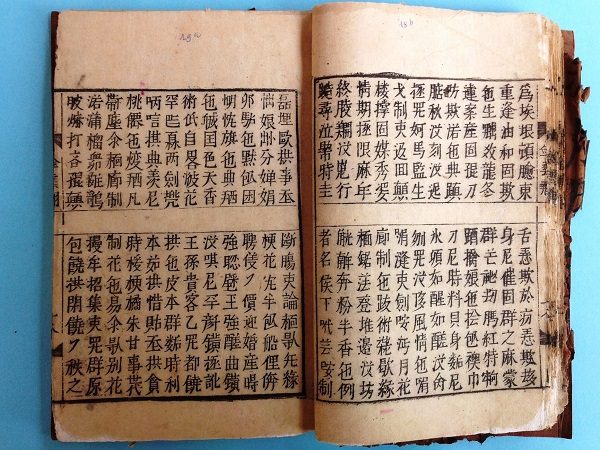
To understand the languages of Vietnam today, we need to rewind the tape a bit.
For most of Vietnam’s history, its people primarily spoke Vietnamese, specifically, a language belonging to the Austroasiatic family. Vietnamese has absorbed a ton of influence over the centuries, especially from Chinese, thanks to a thousand years of Chinese domination that began in 111 BC. During that time, Chinese (specifically Classical Chinese) was the language of the elite, administration, and education.
Vietnamese scholars used chữ Hán (Chinese characters), and later developed chữ Nôm, a complex script combining Chinese logograms and local innovation. And then — plot twist! — along came 17th-century missionaries who introduced the Romanized script quốc ngữ. This alphabet, based on Latin with some spicy diacritics, became the official writing system after the French colonial period. Practical, quirky, and much easier to type on a smartphone.
Vietnamese Today: National Language with Regional Spice
So, what language do Vietnamese people speak now? The answer is still primarily Vietnamese, or tiếng Việt. But don’t be fooled — it’s not one-size-fits-all.
There are three main dialects:
- Northern (Hanoi, Hai Phong): The formal, textbook version.
- Central/Northern Central (Hue, Quang Nam, Nghe An/Ha Tinh): Dramatic and melodious, with vocabulary and pronunciation that might confuse even native speakers.
- Southern (Ho Chi Minh City/Mekong Delta regions): Chill, sing-songy, and arguably the easiest for foreigners to pick up.
Vietnamese is a tonal language with six tones. That means “ma” can mean ghost (ma), mother (má), tomb (mả), horse (mã), or rice seedling (mạ), depending on how you say it. (Try that without sounding possessed). Add to this the fact that there are over 50 ethnic minority languages spoken across Vietnam, from the Hmong and Tay in the north to the Ede and Jarai in the highlands, and you get a truly rich linguistic tapestry.
Pro tip: Learning the following phrases will wow the locals and open a new door to many interesting stories
English in Vietnam: The New Kid on the Block
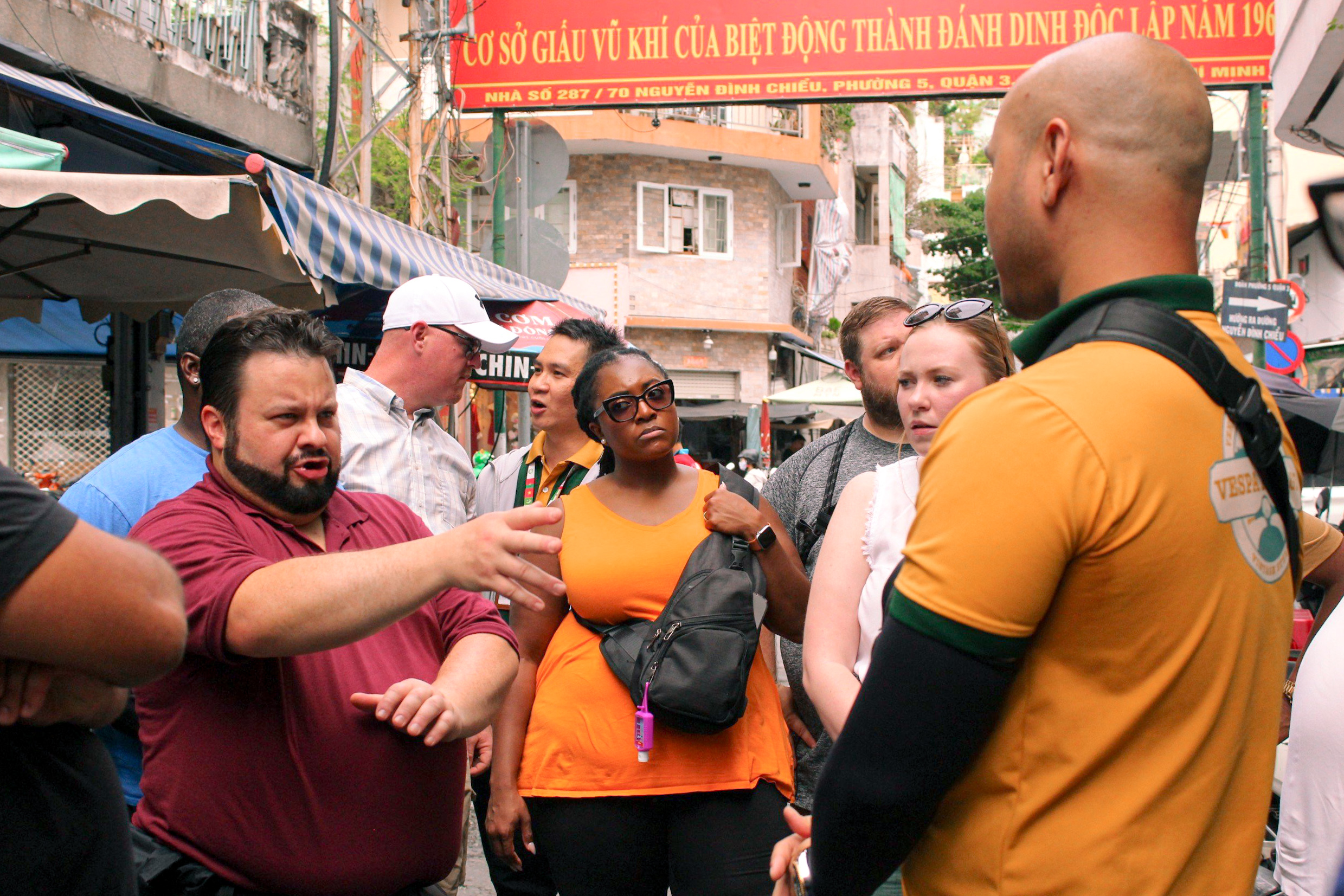
While English was once the stuff of elite universities and overseas dreams, it's now practically a common tool for many young Vietnamese. It’s taught in schools, plastered on billboards, and in the country’s countless English language centers.
In urban areas like Hanoi and Ho Chi Minh City, many young people can hold a conversation in English, especially those in tourism, hospitality, and tech. Rural areas? Less so, but that's where pointing, smiling, and translation apps become your best friends.
Where you can confidently use English in Vietnam:
- Tourist hubs, hotels, and airports
- Trendy cafes, restaurants and bars in big cities
- (Some) Universities and coworking spaces
- Parks (surprisingly) with university students wanting to practice English
Pro tip: Be patient. Locals want to speak English with you. It’s a badge of honor and a great excuse to show off.
Chinese Language in Vietnam (Both Mandarin and Cantonese)
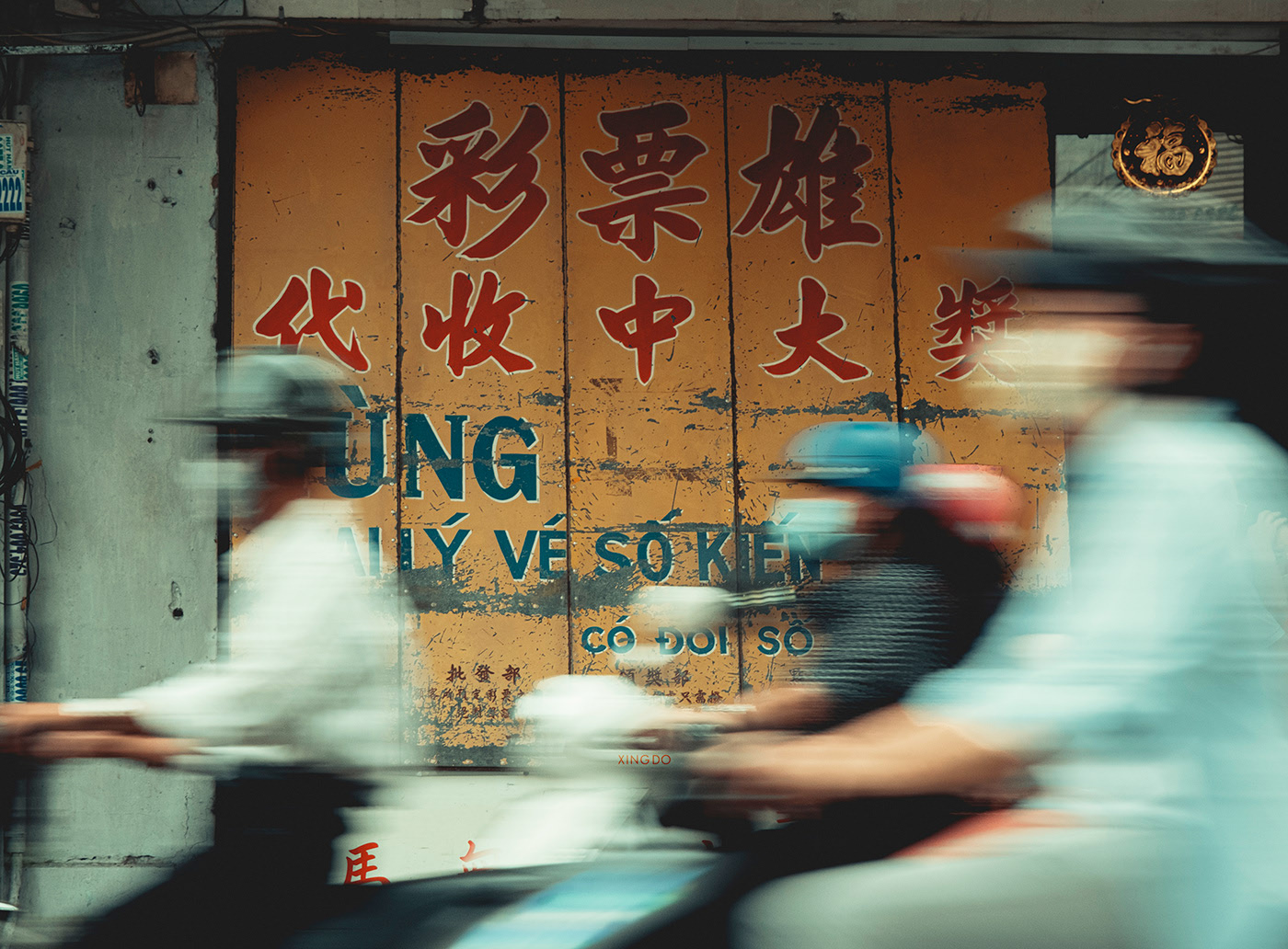
When we talk about the Chinese language in Vietnam, we’re talking about both Mandarin and Cantonese, but with different vibes. Historically, Chinese had a massive influence on Vietnam’s culture and language. While Classical Chinese faded after Vietnam’s independence and later the rise of quốc ngữ (national language), Chinese dialects remain vibrant among the ethnic Hoa population, especially in Cholon (Saigon’s lively Chinatown).
Cantonese is spoken by many older members of the community, especially those with roots in southern China. It's the sound of family conversations, marketplace negotiations, and old-school dim sum orders.
Mandarin, on the other hand, is seen more as a modern foreign language. It’s taught in language centers, universities (related studies and subjects), and sometimes even business courses as Vietnam deepens its economic ties with China.
Where Chinese comes in handy:
- Cholon, District 5, 6, 11 (The Chinatown) Ho Chi Minh City
- Chinese temples and traditional medicine shops
- Business settings, trade expos, and negotiations
Bonus: Speaking Chinese (Cantonese) in Chinatown of Saigon will unveil some interesting stories that no travel guides will tell you.
Korean and Japanese in Vietnam: Pop Culture Powerhouses
Let’s talk K-drama and sushi rolls. Thanks to the massive waves of Korean and Japanese pop culture, both languages have become surprisingly influential in modern Vietnamese life.
Korean is booming in popularity. From BTS and Blackpink to samgyeopsal (grilled pork belly), Vietnam is firmly on the Hallyu (Korean Wave) train. Thousands of young people are studying Korean in hopes of studying or working in South Korea, understanding K-dramas without subtitles, and especially working directly with Koreans in Vietnam, whether it’s in tourism or other industries, who only prefer to speak their own language.
Japanese is also well-loved, especially among anime fans, tech enthusiasts, and those working for Japanese companies (of which there are plenty in Vietnam). Japan is a major investor here, and working for a Japanese firm is seen as prestigious.
Where you’ll hear or use Korean and Japanese in Vietnam:
- Language schools and language clubs in big cities
- Korean BBQ restaurants (seriously, they’re everywhere)
- Korea Town in District 7
- Japanese Town in District 1 or Binh Thanh District
Fun fact: In some high schools and universities, students can choose Korean or Japanese as a second foreign language, right after English.
European Languages: Echoes of the Past and Curiosities of the Present
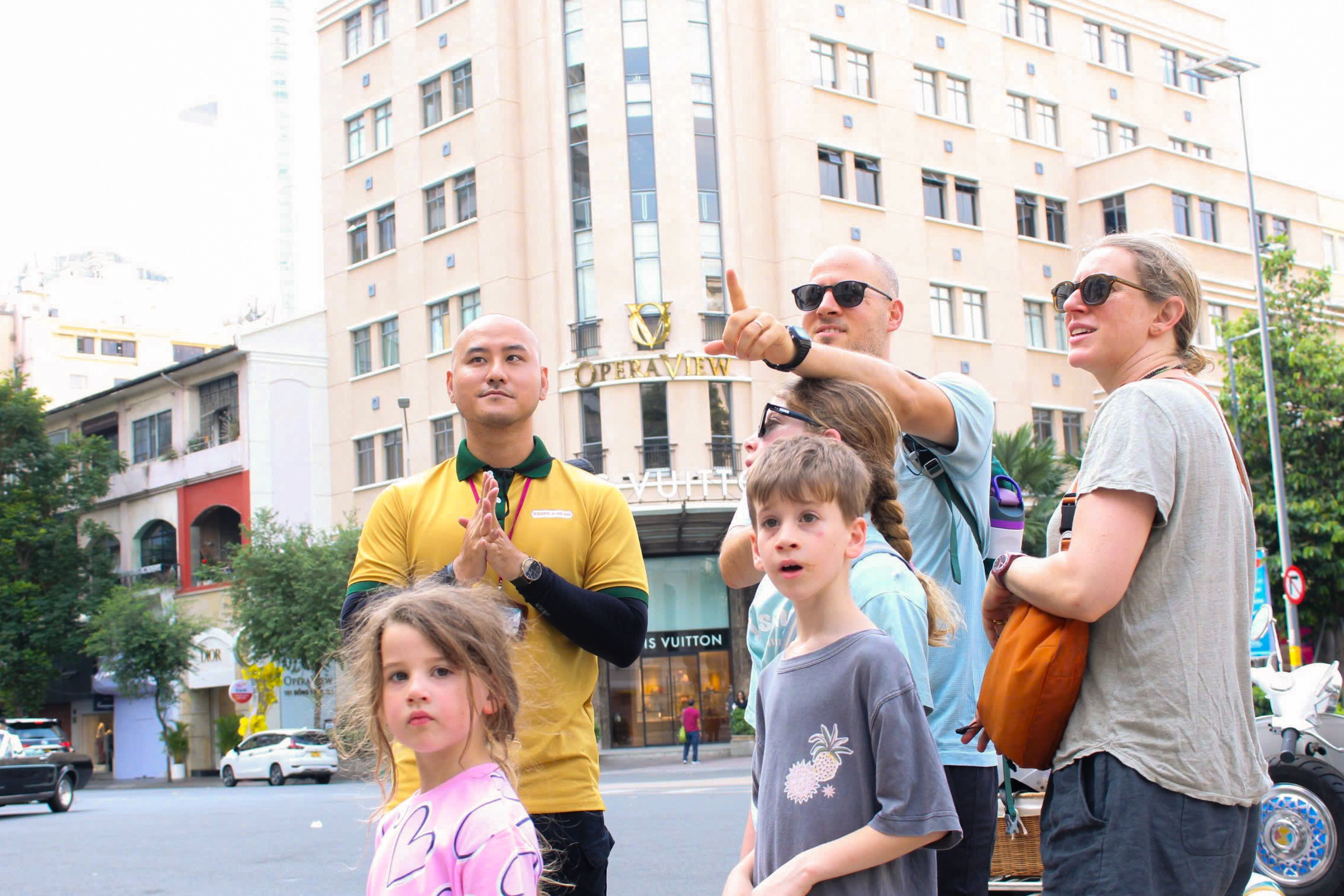
It may surprise you, but European languages still resonate in parts of Vietnam, from colonial legacies to the curiosity of language learners.
French has the deepest roots. As the colonial language of Indochina, it was once the language of the elite, government, and education. While French is now more niche, it remains prevalent in architecture, cuisine (bánh mì!, TV and other technical-related words). It's also still taught in some schools and language institutes.
Russian has an entirely different origin story: tied to Vietnam’s close ties with the Soviet Union during the Cold War. Many Vietnamese studied engineering and medicine in Moscow or Kiev, and you’ll still find Russian-speaking Vietnamese engineers and tour guides, especially catering to Russian tourists in Nha Trang or Mui Ne.
Spanish and German are more recent arrivals. They're growing in popularity thanks to study abroad programs, language centers, and, let’s be honest, Netflix and Spotify. Some young Vietnamese are learning these for fun, scholarships, or dreams of European travel.
Where European languages come up:
- French: Universities, French consulate events
- Russian: Nha Trang and Phan Thiet tourist areas
- Spanish & German: Language schools in Hanoi and Saigon, and sometimes at latin dance nights in cities like Saigon or Hanoi
So, What Language Should You Learn for Vietnam?
If you're heading to Vietnam or thinking of moving here, here’s your beginner guide:
- Vietnamese: Learn a few basics. Locals love it when foreigners try.
- English: Essential and enough for daily survival in cities.
- Chinese: Great if you’re doing business or living in Chinatown.
- Korean/Japanese: Trending hard, especially among the youth.
- French/Russian: Niche, but still culturally rich and relevant in certain circles.
Especially, a tour with VGG will not only take you to see (and taste) the secrets of Saigon, but also will give you an opportunity to learn a new culture, the Vietnamese language and interact with the locals.
Conclusion: Vietnam’s Multilingual Soul
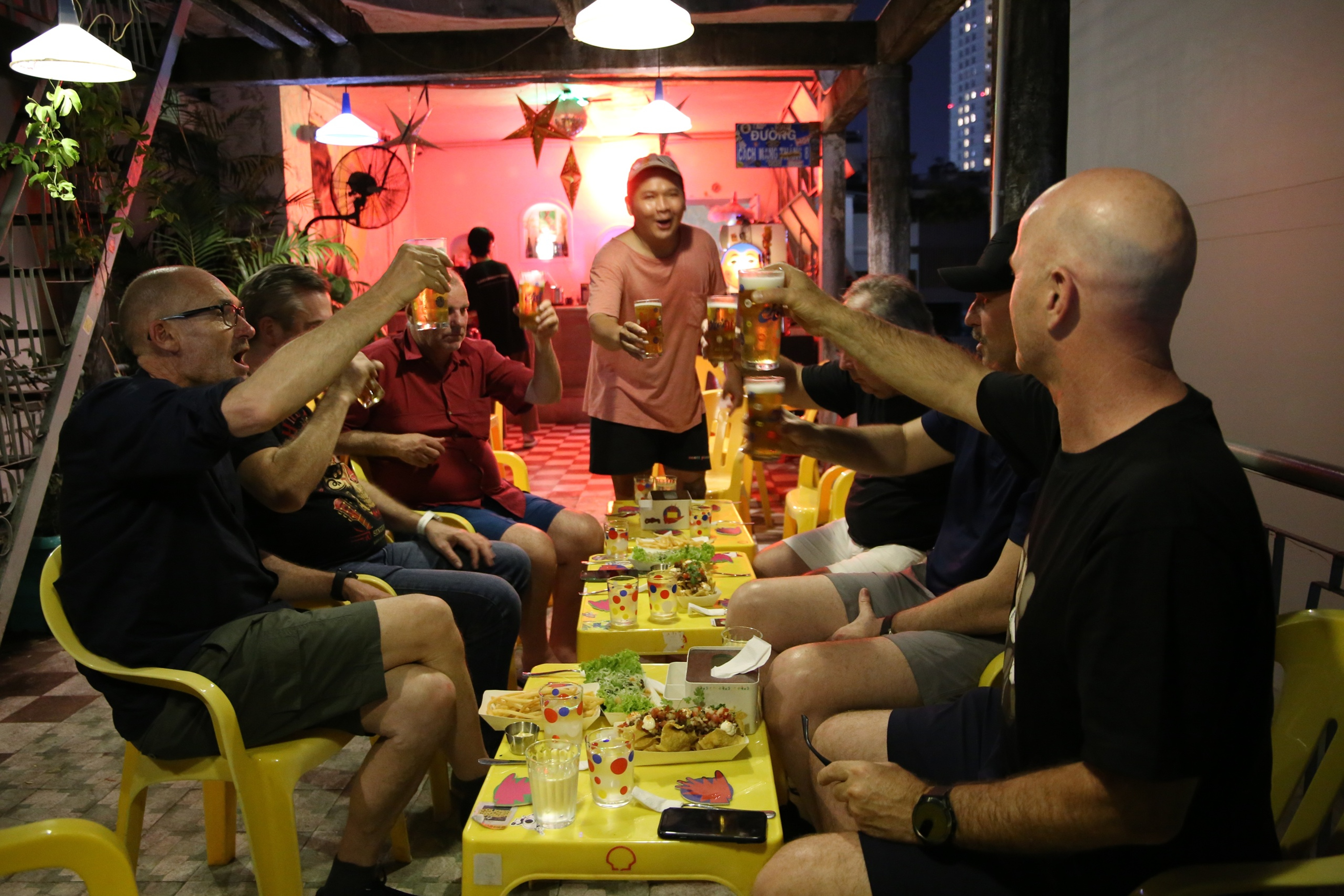
The languages of Vietnam are more than just words — they’re keys to understanding the soul of the country. From ancient Chinese characters to Gen Z’s slang, Vietnam is a linguistically dynamic place.
So next time someone asks, “What language do Vietnamese people speak?” — tell them: "Mainly Vietnamese... but stick around long enough, and you’ll hear a whole symphony.”
Một, hai, ba, dô!
(That’s “cheers” in Vietnamese, by the way.)
Other tips
- Ho Chi Minh City: A Global Melting Pot of Cultures on a Plate
- Essential Vietnamese Lunar New Year Decorations for Your Home
- Vietnam Symbolism: The Soul, Identity, and Resilience of the S-Shaped Land
- Vietnamese Dragon: Meaning, Legend & Cultural Identity
- Islam in Vietnam: Distinct from the Rest of the World
- Cyclo Vietnam: The Insider Guide to Vietnam’s Most Iconic Pedicab Experience
- Is the Water Puppet Show Worth It? An Honest Review & Deep Dive into Vietnamese Water Puppets History
- Celebrating Mid-Autumn Festival in Vietnam 2025 | The Ho Chi Minh City Insider's Guide
- What's happening on September 2nd in Vietnam? Vespa A Go Go Explains It All!
- Vietnam Independence Day: 80 Years. One Unforgettable Celebration
- Beyond the Sights: An Insider’s Guide to the Soulful Music of Vietnam

